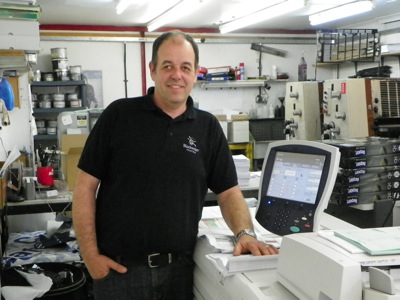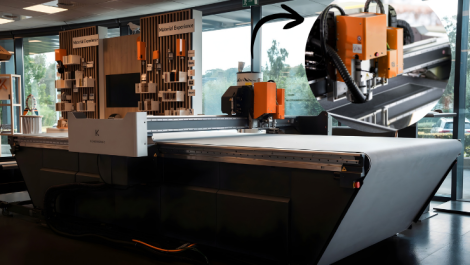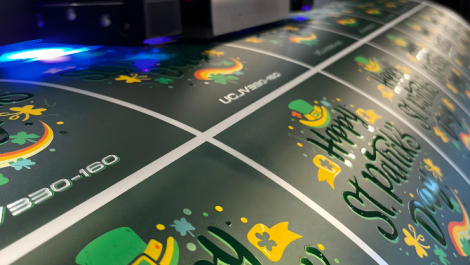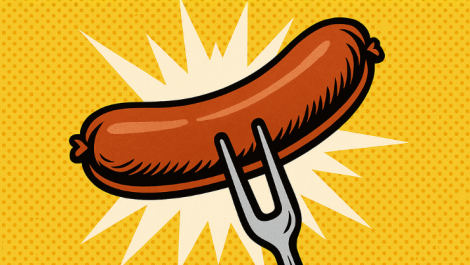Ian Barbrook founder of Blackwater Printing
Blackwater Printing is in its 25th year, but with digital work taking off, there’s little time for celebration.
England was famously described by Napoleon Bonaparte as a nation of shopkeepers, and its print industry has long been dominated, in numerical terms at least, by small operations, often family concerns or one and two-man bands, eking out a living on a shoestring budget with just their wits, personal touch and energy to see them through the decades.
Blackwater Printing has been one such firm, and this year it is celebrating its 25th year in business. In essence, it is a one-man show – Ian Barbrook started the company in the late 1980s after a previous print business he worked for closed down. He began by investing in a Rotaprint offset press and a Danagraf camera.
Next door to his unit in Maldon, Essex, is Crescent Card Company – one of the UK’s few remaining hot metal and letterpress operators. While operating separately, the two companies help each other out – Crescent with finishing for some of Blackwater’s print, and Blackwater with its digital printing capability.
Over the years, Blackwater has invested in a single colour Fuji offset press and A2 Oliver press, and in 2004 a twocolour Fuji offset press. Then three years ago, it made the move into digital with Xerox – first a DocuColor 240, and then earlier this year a DocuColor 700. ‘Most of the work could go on the 700 now,’ Mr Barbrook explained. ‘It’s all jobbing print, but I’m doing more colour work. Getting digital is just another evolution. I was putting work out to people and I thought, if I put digital in I could make it pay.
‘The Xerox 700 has done 30,000 clicks in the first five weeks of having it, which is about a quarter’s worth of work normally. When I put the DC240 in three years ago, I was doing about 90,000 a year.’ The two-colour Fuji press remains, but is used less and less these days. Many customers are very happy to take, say, 150 brochures printed digitally, and then come back for additional runs as and when needed.
Mr Barbrook professes to be careful about investing in machinery. He has always bought old technology, and plates for the offset press are still made using film. This does not mean that Blackwater is distinctly low tech and low aspiration – rather it is a reflection of reality for a one-man operation.
For example, having invested in a digital press and set up a new website to cater for the short run needs of customers, there is now a need for a job control system that takes the leg work out of the whole raft of admin tasks related to processing a job. The problem is, the systems available that do this are too expensive.
‘I’m printing more jobs with less value, and paperwork becomes a real problem with digital,’ said Mr Barbrook. ‘I need a job control system but everything available is so big and complicated. It’s all out of reach for a company like this to get off the ground with. There’s not a basic little system for £500. You don’t realise how much of a problem it’s going to be.’
Business is usually gained through word of mouth, and maintained through Mr Barbrook’s own personal touch and commitment to quality, reliability and honesty. Nevertheless, the prospect of expanding the business and offering new services interests him. He would like to hold an open day to mark the first quarter century of Blackwater Printing. The simple truth, he admits, though is that he has ‘not got time to do anything’.





